Mathematics
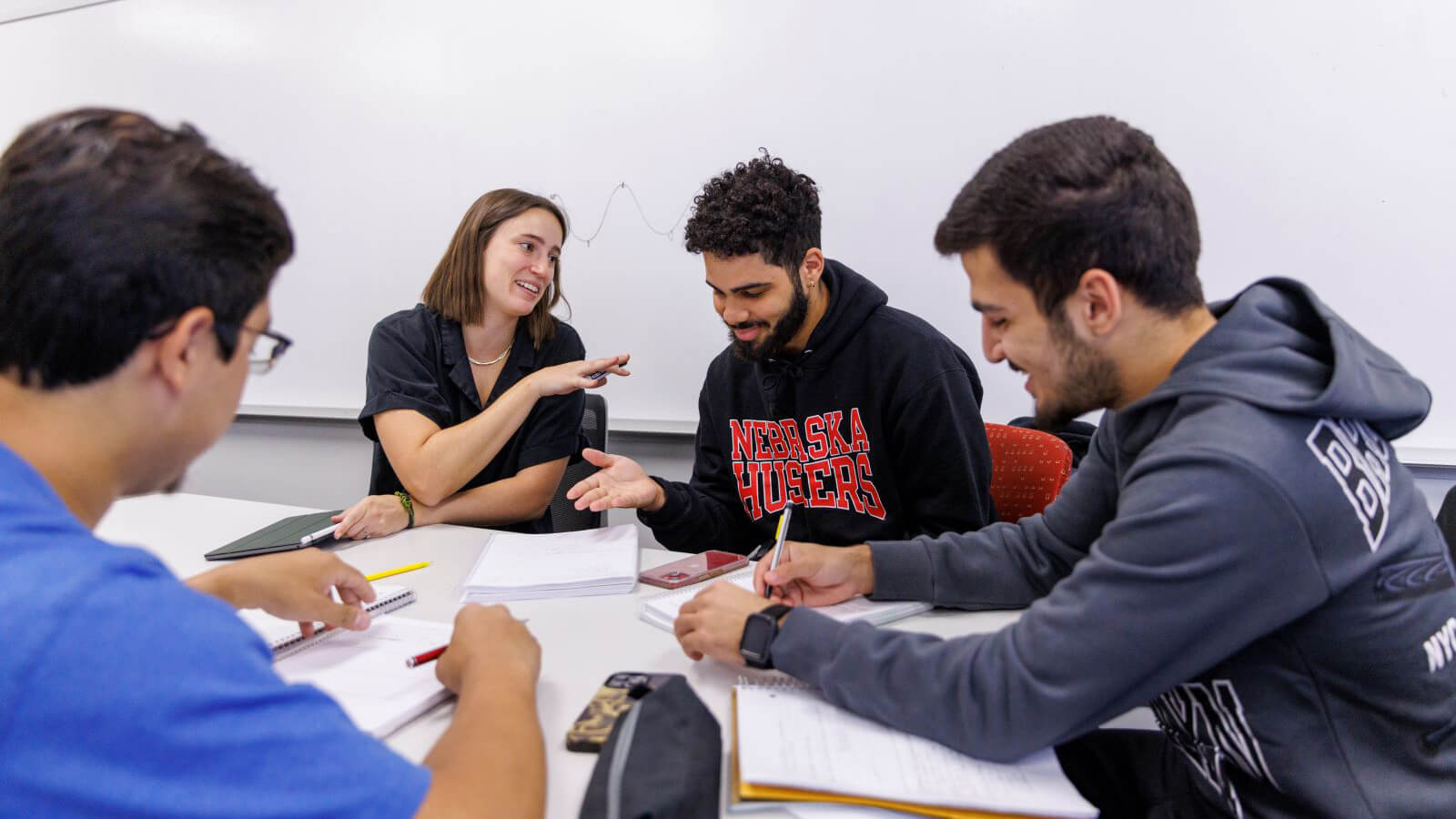
-
College
-
Hours Required
120 -
Minors Available
Mathematics
-
Areas of Focus
Standard, Discrete Mathematics and Cryptography, Education, Mathematical Biology, Mathematical Finance, Mathematics of Physical Phenomena, Statistics and Data Science
The Nebraska Difference
Curiosity
Discover what moves you with a variety of academic disciplines.
Flexibility & Choice
Customize your degree with course choices. Add a minor or second major.
Hands-On Experience
Build knowledge, skills and experience in and out of the classroom.
Limitless Career Paths
Connect your major, interests and goals to any field.
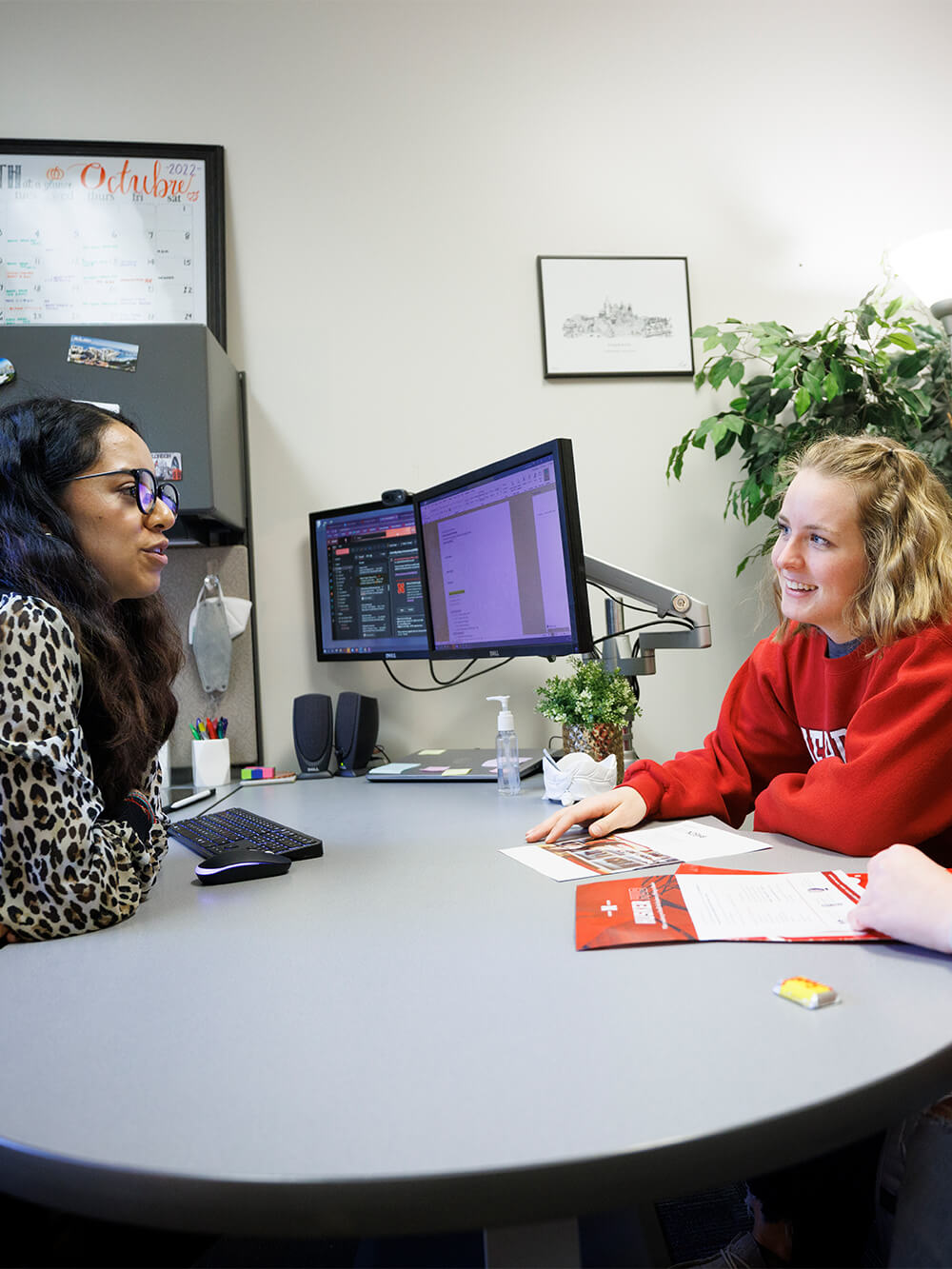
Program Features
Focus and Range
Dive deep into your mathematics major while taking a wide variety of courses across all areas in the College of Arts and Sciences. Graduate academically well-rounded and eager to keep learning. Use your collaboration and communication skills to address complex problems and make a positive impact professionally and personally.
1-to-1 Academic Advising and Career Coaching
Along with your faculty, professional academic advisors and career coaches will help you make a one-of-a-kind degree plan. We are focused on your success, while at Nebraska and after graduation, whether your goal is employment or graduate/professional school.
Tailor the Major to Your Interests
Select one of seven different options that allow you to either keep your course selections broad, or tailor them to connect to a related discipline or career field. It’s also easy to overlap your option with a minor or even a second major.

Notable Courses
Elementary Analysis (MATH 325)
Mathematical reasoning, construction of proofs and careful mathematical writing in the context of continuous mathematics and calculus.
Group Theory (MATH 417)
Cyclic, dihedral and permutation groups, subgroups, co-sets, normality and quotient groups and fundamental isomorphism theorems.
Principles of Operations Research (MATH 428)
Techniques and applications of operations research. Includes linear programming, queueing theory, decision analysis, network analysis and simulation.
Number Theory (MATH 445)
Fundamentals of number theory, including congruences, primality tests and factoring methods. Diophantine equations, quadratic reciprocity, continued fractions and elliptic curves.
Stochastic Processes (MATH 489)
Markov chains, continuous-time Markov processes, the Poisson process, Brownian motion and introduction to stochastic calculus.
Mathematics of Machine Learning (MATH 432)
An introduction to the essential mathematical content necessary to understand machine learning, including vector spaces, higher-dimensional differentiation, optimization, neural networks and implementation of algorithms.
Huskers Do Big Things
Internships
- Actuarial intern, Lincoln Financial Group
- Intern, U.S. Embassy
- Intern, Bureau of Sociological Research
- Intern-group actuarial, Ameritas Life Insurance Corp
- Associate logistics professional intern, ConAgra Foods
Careers
- Database analyst, U.S. Army Corps of Engineers
- Underwriter, Omaha National
- Formulation engineer, Syngenta
- Associate application developer, Union Pacific
- High school math teacher, Gering High School
Graduate Schools
- Master’s degree, Business Analytics, George Washington University
- Master’s degree, Statistics & Data Science, University of Wisconsin-Madison
- Master’s degree, Professional Accountancy, University of California-San Diego
- Ph. D., Applied Mathematics, University of Maryland
- Ph.D. Mathematics at the University of Utah
Outside the Classroom
Depending on your major, interests and goals, you can choose to do research, work as an intern, study abroad, become a leader or serve your community. The university’s Experiential Learning requirement ensures you have at least one of these transformative learning experiences; students in the College of Arts and Sciences typically complete at least two.
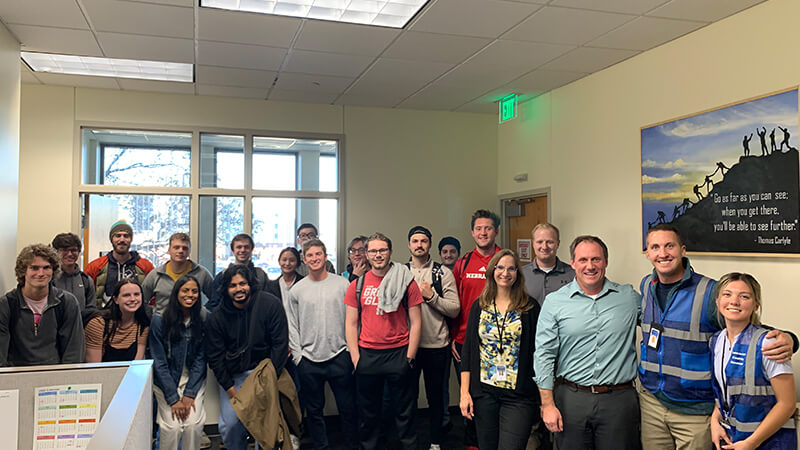
Work alongside a faculty member as a research assistant or design your own research project through the Undergraduate Creative Activities and Research Experience (UCARE) program.

Explore a wide variety of local, national and international internships. Connect with our career coaches to identify opportunities and document the skills and experience you gain on the job.
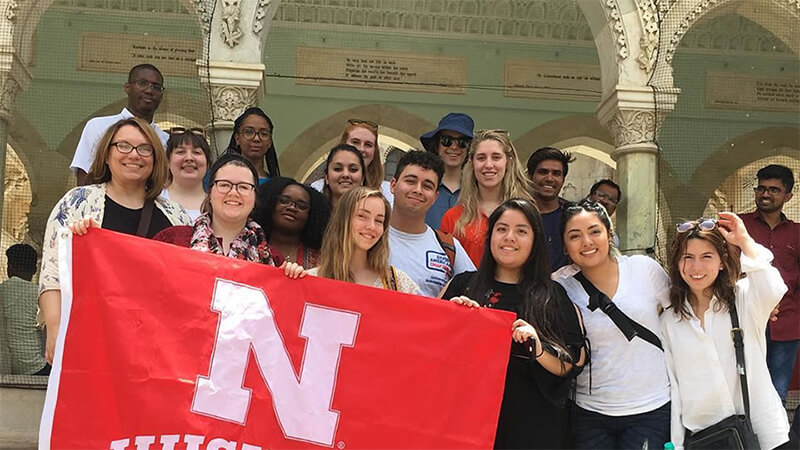
Join other students on a faculty-led program in Budapest, Hungary or connect with our Global Experiences Office to find an affiliate program in almost any location you can imagine.
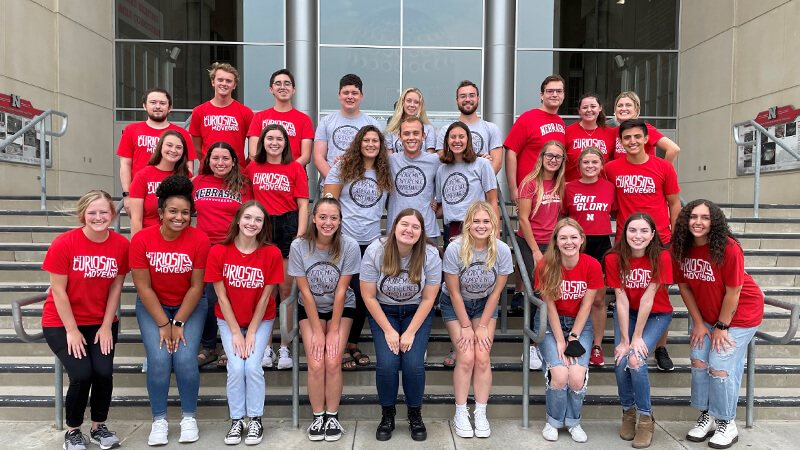
Get involved in one of the 540+ student organizations available at Nebraska. Meet students who share your interests, become a leader or serve the community.
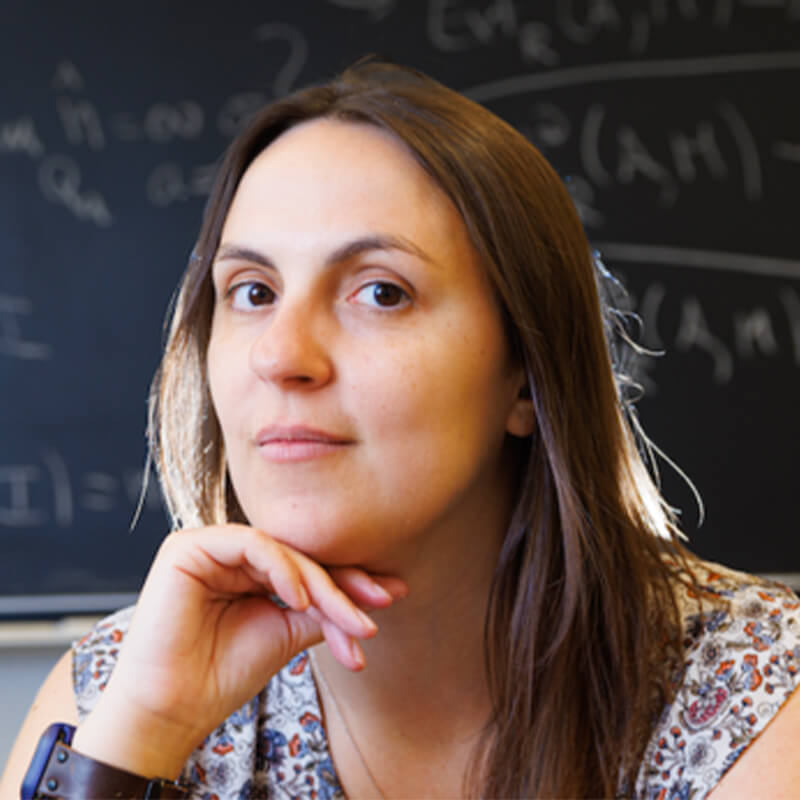
Featured Faculty
Eloísa Grifo, Assistant Professor
Dr. Grifo’s expertise in commutative algebra focuses on points of irregularity, called singularities, in complex geometric shapes described by a system of polynomial equations. She is also engaged in outreach activities with Lincoln Public Schools and running an online platform highlighting the work of early career researchers. She recently received an early career award from the National Science Foundation.
Academics & Experiential Learning
- Our motto is Academics + Experience = Opportunities. Employers and graduate/professional schools are looking for students who have a strong academic background and hands-on experience.
- Mathematics majors regularly engage in research or internships, and many study abroad or get involved in service or leadership on campus and beyond.
Career Preparedness
- CASC 200: Career Development in Arts and Sciences. Explore your interests, abilities and values while identifying career options and preparing to apply for internships, jobs or graduate/professional school.
- MATH 435: Math in the City. Partner with local organizations on a real-world project to analyze data around current societal issues.
Community
- Join the Math Club to connect with faculty, fellow students, guest speakers and alumni.
- Help others as a learning assistant in the Math Resource Center.
Have Questions? We're Here to Help
If you have questions about the Mathematics major or navigating the application process, contact us.
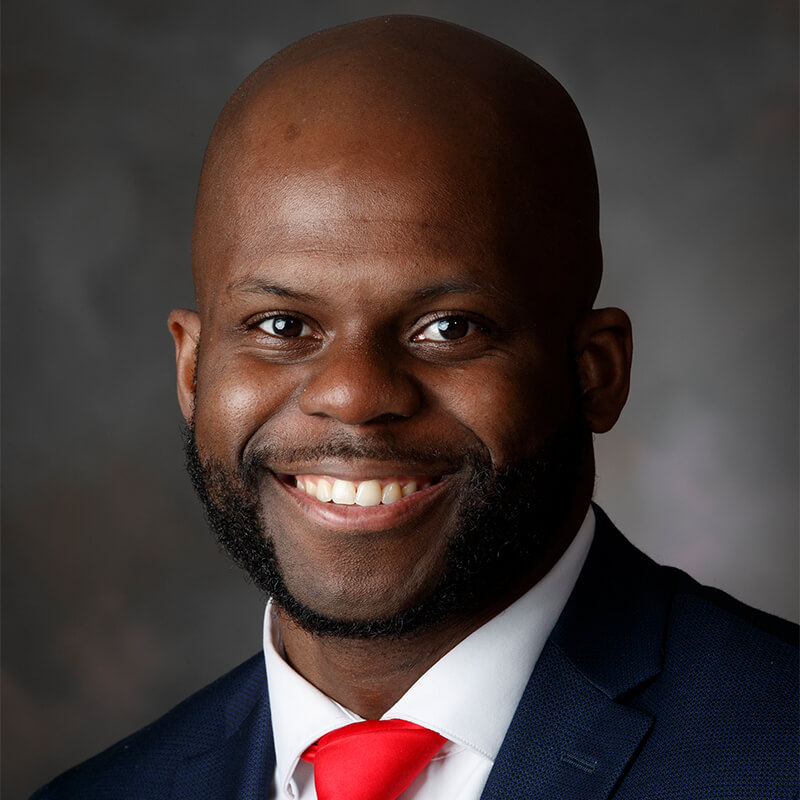
- Contact Name
- Nicholas Gordon
- Contact Title
- Director of Recruitment
- Phone
-
-